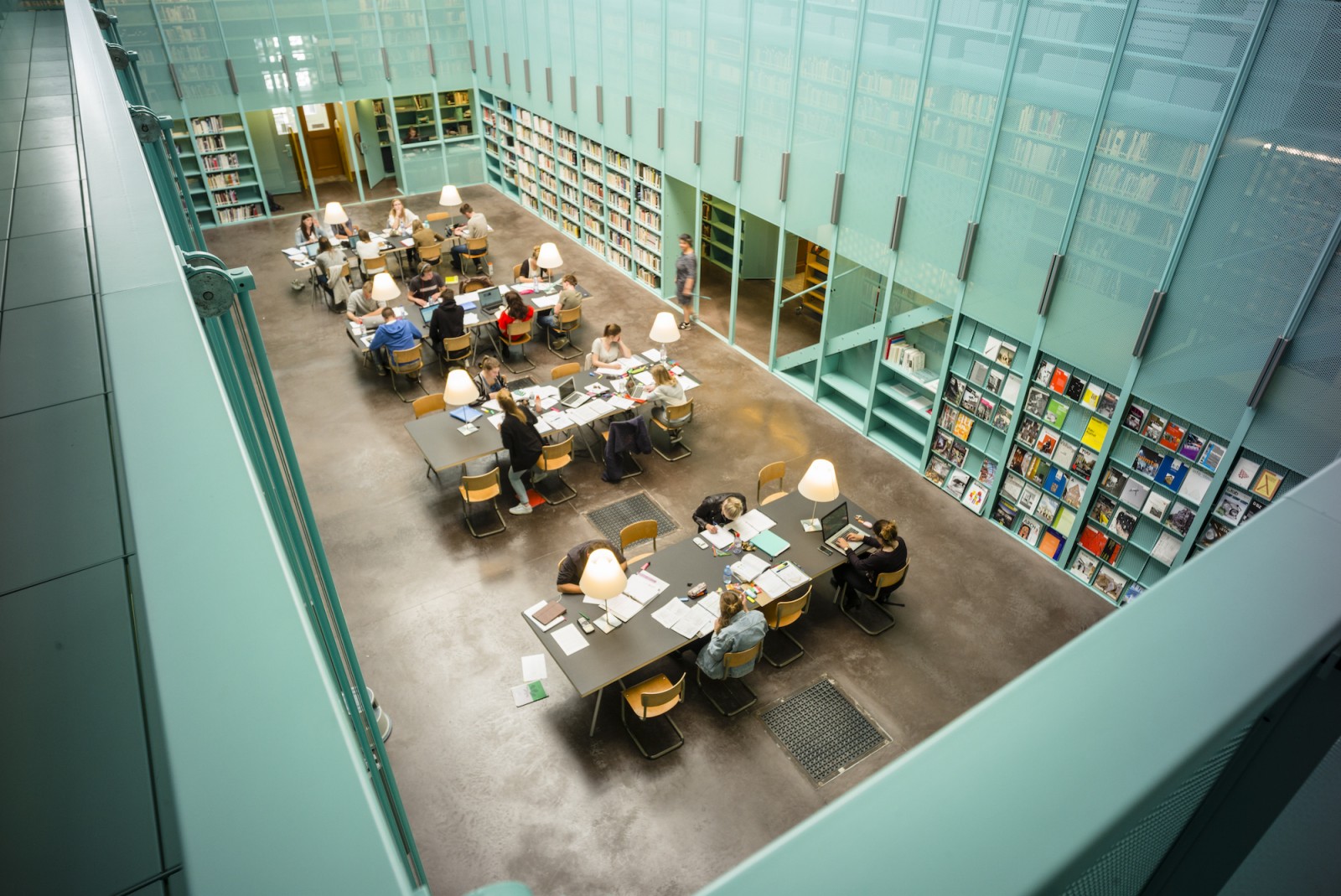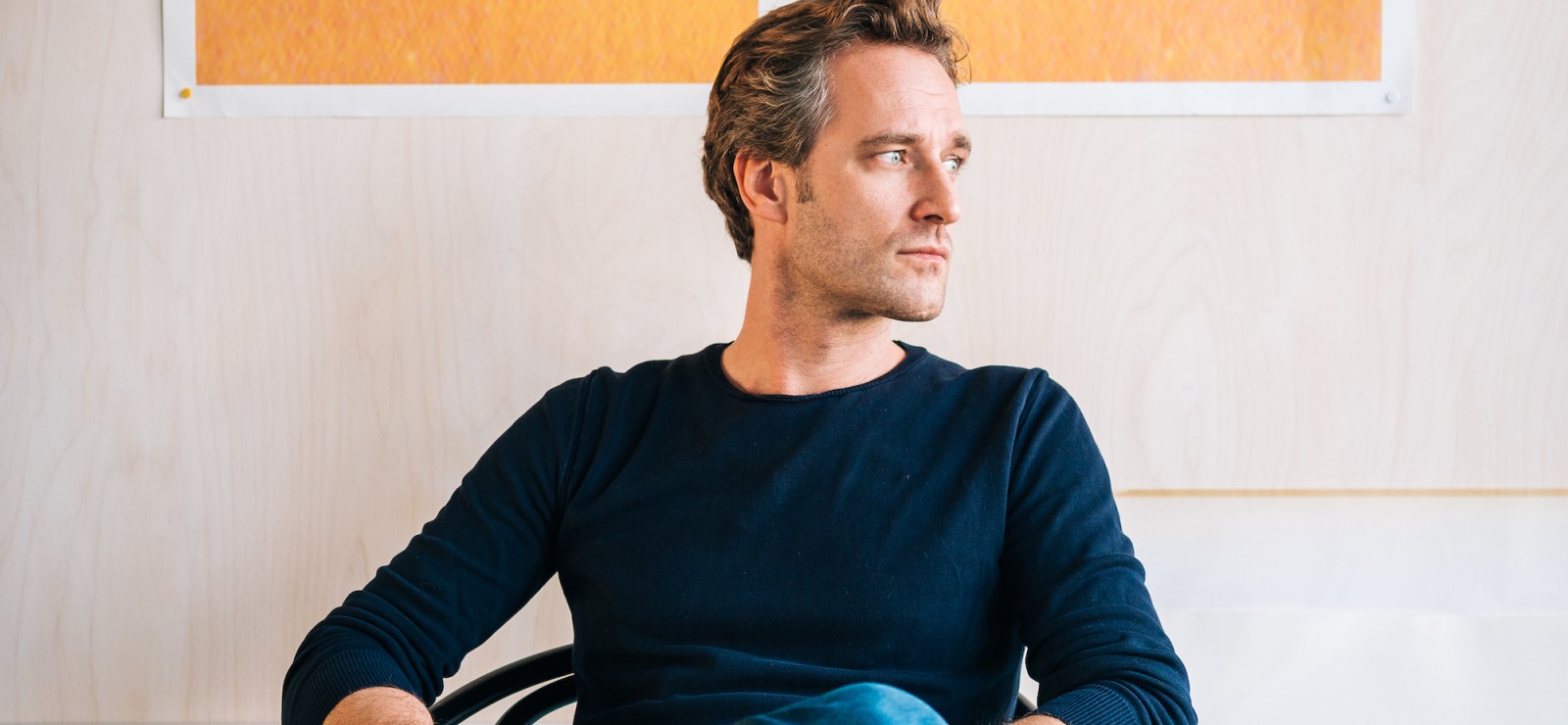A real gem, that's what the library of the Faculty of Architecture and Engineering is. Of course, it was also designed by two of the most promising architects in Belgium today: David Van Severen en Kersten Geers, two Ghent University alumni.
How early did you know that you wanted to become an architect?
David Van Severen: "That's difficult to say. I've always had an interest in design. I often sat for hours on end in my father's studio (designer Maarten Van Severen, ed.), dreaming up things, putting ideas onto paper and putting them together with my own hands. It was my father, in all likelihood, who kindled my passion for architecture. While he was no architect, he cherished the sight of beautiful buildings. He took us everywhere. To cite an example, on my fifteenth birthday we travelled to see Mies van der Rohe's Barcelona Pavilion, which left a lasting impression on me. When it was time for me to decide what to study, I considered product development for a short while, but ultimately opted to go for architecture."
You enrolled at Ghent University: why didn't you apply to an academy instead?
"In secondary school, my main focus was mathematics, which was a good match for the Engineering and Architecture study programme, which is offered only at a university. The fact that the classes at a university are much more technical and focus more on structural aspects, was not something that I considered a disadvantage necessarily. To me, architecture is all about structure. What's more, technical subjects were also supplemented by fascinating workshops, presented by people like Stephane Beel. And during Professor Mil De Kooning's classes, we were challenged to make our own replicas of existing designs. I got so much out of those classes. A diploma in engineering and architecture is also very versatile. You can continue on in a purely technical vein, but you can also do theoretical research or become an architect. Teaching is also an option. Kersten and I both teach at Harvard."
After graduating, what did you hope to go on to do?
"What I wanted, above all, was to get started working as soon as possible. I was given the opportunity to start my professional career at the Stephane Beel and Xaveer De Geyter's firm, who were engaged in designing the building of the Faculty of Economics and Business Administration at Ghent University at that time. I worked there for four days a week. This gave me three days off -Friday, Saturday and Sunday - to spend on my own projects, together with Kersten."
In 2011 Ghent University commissioned you to design the Engineering and Architecture Faculty Library.
"We were extremely pleased to have been granted this tender. As students, we had even taken physics classes in the lab, which was already rather outdated at that time. Not only is the building a success as a library, people really enjoy studying there as well - or that's what we keep hearing anyway. Apparently, the library gives off a peaceful feel."
What was the basic idea behind your design?
"Actually, the library is a huge bookcase that at the same time creates a sense of spaciousness. In other words: a piece of furniture, the bookcase, becomes architecture. By pulling down the perforated panels, you can transform the library into an events hall. Thanks to the panels, the books are protected, while still remaining in full view. The schedule of requirements for this commission was very complex, but the result exudes a sense of serenity. But that's also an issue that keeps us awake at night how do you create simplicity in the midst of a complex context? It is not that we embrace minimalism in particular. What we really want is to create a framework that generates a host of possibilities."
How do you set to work in fleshing out an idea?
"Usually, our clients' requirements are rather complex. We start out by taking the time to let everything properly sink in. We don't try to come up with an answer straight off, but try to look at it from another perspective. And that's also how the idea for the library was born. The idea of the bookcase offered a solution for all the practical problems we encountered: how can you allow the smaller rooms along the sides to connect to the main area, how do you ensure that control is retained over who enters and leaves the building, and so on."
What do you still hope to achieve in the future?
"That we can continue doing what we're doing now for a long time to come, and that we can keep picking up new things along the way. You can acquire a great deal of knowledge at the university, but it's in the act of designing that you learn someth1ing new each day. Architecture is really exciting because every design is a prototype. You are continually faced with new challenges."

Do you have any tips for budding architects? What pitfalls or mistakes should they try to avoid?
"The thing with mistakes is ... you can learn something from anything you do. To be honest, we've never really had a strategy. We often rely on gut feeling and intuition. As far as I'm concerned, the most important thing is to do what you enjoy, and above all: be true to yourself."
Read also
Back to university with Davina Simons: "I have many fond memories of my student days"
Als eerste in haar familie die ging studeren, moest Davina Simons (30) het vooral op eigen krachten doen. In 2019 behaalde ze haar master in de rechten aan de UGent. In geen tijd groeide ze uit tot een van de bekendste strafpleiters van het land en vandaag runt ze haar eigen advocatenkantoor.
Alumni in search for the perfect potato with AI
Barely two years ago, Jarne Bogaert (25) graduated as a civil engineer from Ghent University. Today, he and two fellow students run the Ghent-based AI company Polysense, which helps food companies produce less waste.
Alumnus Serhat: “The best thing you can do is pass on what you have learned to students”
What if, after graduating with a degree in medicine, you chose not to take the safe path, but to venture into the unknown? Ghent University alumnus Serhat Yildirim moved from Ghent to Harvard in the United States with a Fayat scholarship, where he discovered that the world was much bigger than what he had known back home.
Student entrepreneur’s glove set to revolutionise the world of combat sports
Pain is almost inevitable in combat sports and Ghent University alumnus Ashkan Joshghani (33) knows this all too well. A sports injury resulted in an innovation that extends far beyond the mat. It is known as Exoligamentz.




